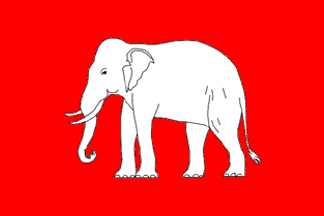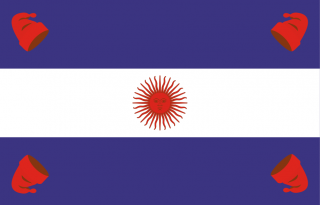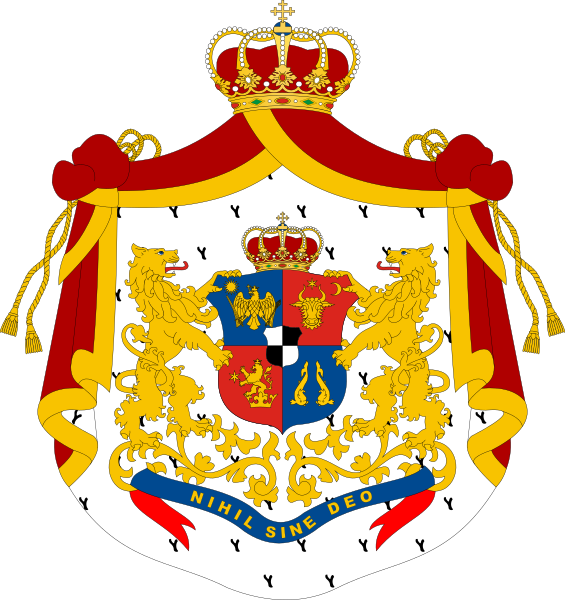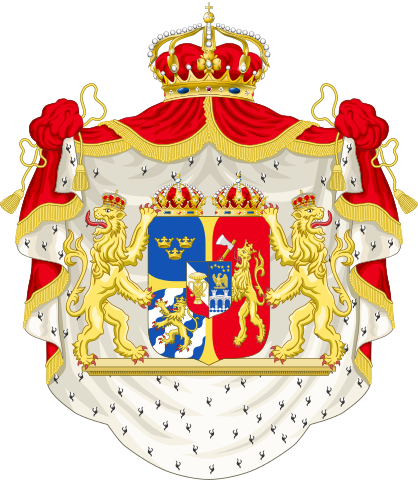As fall approached, and with it the coming winter and a halt of operations, the Union was eager to continue with their success from earlier in the year and tighten the noose around the Confederacy. Their morale was running high, and they were confident of victory. Many believed the war would be over by this time next year, and a few optimistic folk were expecting an end to the war by christmas. The Confederates, on the other hand, had settled into a mood of grim determination. The odds were now against them, but they believed God was on their side, and if they fought with all their might, they would be victorious. In Charleston, the leadership pored over maps, hoping to find a way of fighting off the Union without splitting their forces too much. But, with Union success in the west, it was inevitable; they would have to divide their current armies and pray that it would be enough, that they had made the right decisions. Only time would tell.
Davis believed that it was now too late in the year for the Army of the Potomac to attack the CSA, and therefore decided to send Lee and 20 000 men west to support the western front. Lee disagreed with Davis, but made no complaint and followed his orders. The Army of Northern Virginia had used the time spent waiting to dig themselves into heavy fortifications, but they were now down to half their previous strength, and their leader General George Thomas, although a capable commander, was not on the same level of Lee. And the audacious plan that McClellan was putting into action would leave the defences useless. Moving south down Cape Charles, McClellan and 50 000 men crossed over the Chesapeake and up the James River to launch an assault on the flanks of the Army of Northern Virginia. The Union had only 5 transport vessels, but McClellan scraped together anything in the area that could reasonably float and put it into action, allowing around 8000 men to cross the bay at a time. However, this gave time for Thomas to hear the news and decide what to do. He had three choices; attack McClellan with his full force, move south to protect Richmond, or attack the now less defended north and try to take Washington. Perhaps a daring general such as Lee would have considered a move north, but Thomas had a reputation for being a slow and deliberate leader, and he showed this now. He quickly sent a vanguard of 5000 to attack the Union landing place while he mobilised the remainder of the army.
Battle was joined in the middle of a hazy late summers day, when the Confederate vanguard hit the Union force, numbering only 8000 at the time, as delays had meant only one deployment across the bay had been made. McClellan himself had not yet landed, and command fell to his subordinate George Meade, while the Confederate force was commanded by James Longstreet. The Confederates, knowing the importance of the battle, fought with all their might and quickly gained the upper hand. If the Confederates could destroy the initial landing force, they would be able to send cannonfire directly onto the landing vessels, and easily repel McClellan's attack. As they pushed the Union forces closer to the beaches, however, a stalwart defence by Meade bought enough time for the second round of landing vessels to arrive, and as the Union reinforcements quickly entered the fray, Longstreet gave the order to withdraw back up the peninsula, hoping to preserve his force. They quickly met up with Thomas and the remaining army, and they about faced and attacked the beachhead once again. The battle swung back in the Confederate's favour, and as night fell they continued the assault, banking on the fact that the Union could not transport men during the night. The Union managed to hold on, however, and as the next day dawned, another landing gave the Union enough of an advantage to push back the Confederates. Thomas ordered a retreat, but kept Longstreet in contact with McClellan as they withdrew, so the Army of the Potomac made slow progress up the peninsula. Thomas, judging that his casualties had been too high, decided he could no longer mount a defense of northern Virginia, and sent word to Richmond that he was retreating south. A spirited defence at Drewry's Bluff gave enough time for the city of Richmond to be abandoned; almost the entire population fled south, but not before they had stripped the city bare of everything important, including the Tredegar Iron Works, and burning everything else. Thus, as Thomas and the remainder of the Army of Northern Virginia moved south, McClellan and his forces entered the destroyed city. The victory was not celebrated by his men; the fighting had been fierce and the casualties huge, the highest ever in American history up to that point. Amongst the dead was Brig. Gen. George Meade, who had been wounded in the first day of fighting and had succumbed to his wounds.
(-3000 regulars, -8000 conscripts to the USA, -1000 regulars, -5000 conscripts to the CSA)

Richmond skyline after the evacuation. The burnt-out Mayo Bridge is in the foreground
Although some believed him to be the best general in the world at the time, Robert E. Lee had had few opportunities to prove his worth in this civil war. He had only been involved in one battle so far; the inconclusive Battle of Bull Run. It was now time for him to prove his competence. He and half of the Army of Northern Virginia made it to Atlanta where they merged with the remaining Army of Tennessee, with Lee taking command. The now 40 000 strong Army of Tennessee immediately moved north towards Chattanooga, only to meet with Sherman and an army of 50 000, rather confusingly also called the Army of Tennessee, who was moving south to attack Atlanta. The two armies met at the small township of Rome, Tennessee, almost equidistant between Chattanooga and Atlanta. Despite having a smaller force, Lee was an expert at using the landscape to his advantage. Lee strengthened his position on a natural ridgeline and centralised his forces to form an anvil, and as Sherman hit his front lines, Brig. Gen. Beauregard moved around to the west and struck Sherman's army like a hammer. The resulting bloodshed forced Sherman to withdraw back to Chattanooga. Lee pursued, but Sherman held his ground in the city. With news now coming in of the defeat that had taken place in Virginia, Lee's home state, he was reluctant to engage Sherman when he wasn't able to pick his battlefield, as he did not want to risk the lives of any more men that might be needed for the more important eastern theatre. Instead, Lee sent his cavalry around the city to cut communications and supply lines to Sherman, and engage the city in a semi-siege, as he waited for further orders from Charleston.
(-3000 conscripts to the USA, -1000 conscripts to the CSA)

Battle of Rome, Tennessee
The final engagement of the year took place on the Mississippi River. General Grant combined his force with that of Sheridans in Arkansas, and the now ~44 000 strong Army of the Mississippi tried for a second time to march down the river and take Vicksburg. Bragg had not received the reinforcements he had hoped for, as the Confederates were already spread thin, and Bragg had to resort to raising whatever kind of force he could muster for the coming campaign. He still had around 16 000 men with him, all tried and tested in the heat of battle, and by pressing into service anyone in the area who looked like they could hold a weapon, Bragg began to form a ragged but determined army. Determination would not be enough, however, and as Grant burned his way south from Memphis, the Confederates were forced to give way and and retreat south, as Bragg feared his ragtag army would break and flee if he tried to engage Grant. Bragg decided that a siege of Vicksburg was unavoidable, and thought that if the city was besieged, it would have two effects; the government in Charleston would see how dire the situation was and send him reinforcements, and his poorly trained army would be forced to fight, having no means of escape. Therefore, Bragg withdrew his army into Vicksburg, sent word out of his predicament, and waited for Grant to attack. Grant hoped to assault the city and take it quickly, avoiding a drawn-out siege, so in the early hours of the morning, he gave the command to attack Vicksburg. The battle lasted hours as, although Bragg was correct in his prediction that the mustered farmhands and stableboys did not fight well at all, his core army stood their ground and fought hard. However, Grant continued to push forward, and the situation looked bad for the Confederates. Bragg was on the brink of ordering the retreat south, when he heard trumpets being blown from south of his position. To the amazement of the Confederate forces, a flotilla of gunboats flying the Confederate flag sailed up the Mississippi and fired upon Union positions. Almost the entire Confederate navy had answered the call, and the shock of their entry into the battle nearly routed the entire Union army. However, a Union shore battery waited silently until the fleet had passed its position before firing, and a shell struck the steam frigate CSS Manassas, destroying her engine compartment and sending her to the bottom. Wary of the danger, the remainder of the fleet turned back for Vicksburg, allowing Grant to regroup his forces. Grant resigned himself to a siege of Vicksburg, and Bragg began to dig his forces in better. Although both sides counted their dead, no one bothered to count how many of those pressed into service before the battle had fallen; no one knew how many there were at the start anyway. Believing the situation to be stable and unwilling to leave their only lifeline with the outside world unguarded, the Confederate fleet turned south and sailed back down to New Orleans.
(-1000 regulars, -4000 conscripts to the USA, - 700 regulars, -2000 conscripts, -1 screw frigate to the CSA)





















